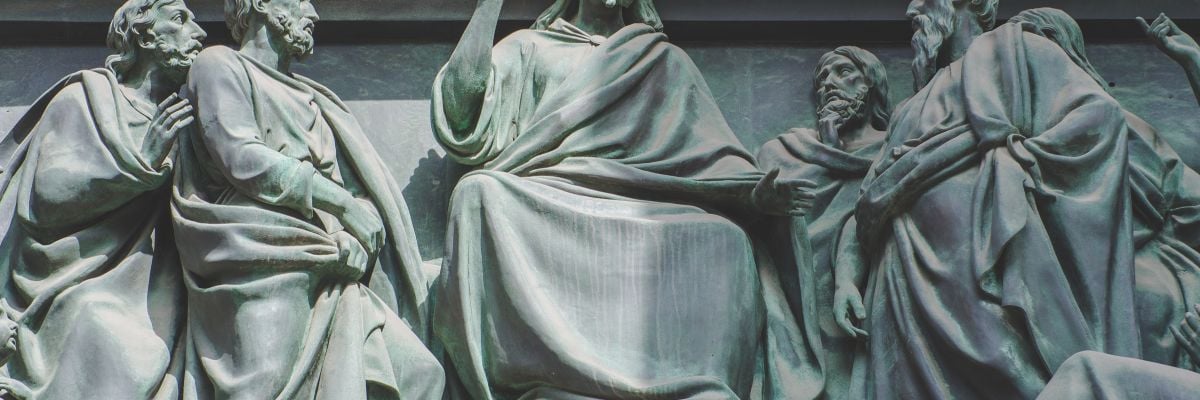
DAY 276
CHALLENGE
“During the Last Supper, the apostles argued over who was the greatest (Luke 22:24). Jesus shamed them, indicating that none of them was the greatest—not even Peter.”
DEFENSE
This misreads the text. Jesus gives a threefold response indicating that Peter was the disciples’ leader.
Responding to the dispute, Jesus says three things. These form a single, continuous quotation of Jesus (they aren’t even interrupted by breaks like “then he said”). It’s all one block, indicating all three parts form his answer to the dispute about greatness.
First, he tells them the principle of servant leadership, which they are all to employ: “The kings of the Gentiles exercise lordship over them; and those in authority over them are called benefactors. But not so with you; rather let the greatest among you become as the youngest, and the leader as one who serves. For which is the greater, one who sits at table, or one who serves? Is it not the one who sits at table? But I am among you as one who serves” (Luke 22:25–27).
Second, he assures them they will all have a prominent place in his kingdom: “You are those who have continued with me in my trials; and I assign to you, as my Father assigned to me, a kingdom, that you may eat and drink at my table in my kingdom, and sit on thrones judging the twelve tribes of Israel” (Luke 22:28–30).
Third, he singles out Peter and charges him with a special pastoral task with respect to the other disciples: “Simon, Simon, behold, Satan demanded to have you, that he might sift you like wheat, but I have prayed for you that your faith may not fail; and when you have turned again, strengthen your brethren” (Luke 22:31–32).
Jesus’ reply begins with a general principle and is progressively more specific. It indicates the disciples have been thinking about the question the wrong way around. Leadership is not about personal greatness but serving others. And there is still a leader—Peter—but he is told “strengthen your brethren,” not “exercise lordship over them.”
TIP
This passage is the background to the pope’s title servus servorum Dei (Latin, “servant of the servants of God”).



